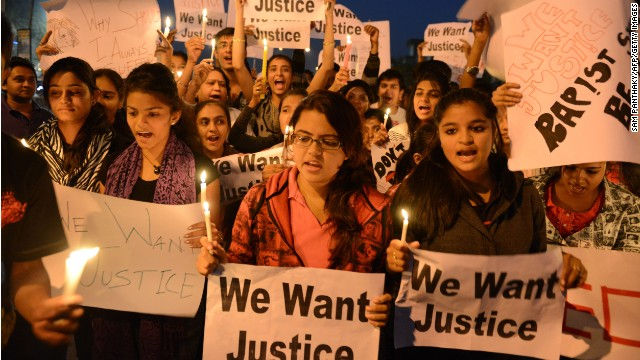Civil or criminal: understanding your options as a survivor of domestic violence
- Shakti

- Dec 14, 2019
- 3 min read
Meghana Chandra
The Indian legal system offers a range of solutions to most problems, including domestic violence, but survivors of violence often don’t have the information necessary to utilize all the options that they have available to them. This article aims to break down the several solutions that the legal system offers.
The legal system is divided into two main categories – civil law and criminal law. Civil law is the system under which complaints are filed by individuals who seek to hold another individual or entity accountable for an issue. In civil cases, the court’s findings result in the payment of damages for harm caused. To pursue a civil case, the victim needs to hire a lawyer, who will then help them file the documents they need to get the financial support or shelter that they may require.
The criminal legal system is the system in which the government, not the victim, brings criminal charges against an offender. This is because the infractions are usually of a serious nature, and the offender is considered a threat to the society as a whole, prompting the government to pursue a case against them. Typical sentences include probation, time in jail, or participation in counselling or substance abuse programs. To pursue a criminal case, the victim needs to report the issue to the police. The police will then conduct an investigation, build the case and collect the evidence required to charge the abuser. If there is immediate threat of danger to the victim, the abuser may be jailed while the case is pending.
A woman facing domestic violence may choose to look for resolution through the civil legal system or the criminal legal system. Her options are contingent on her choices and her circumstances. The questions she needs to ask herself are:
a) Is she facing an immediate threat or danger?
b) Is she facing severe and repeated physical and mental abuse?
c) Does she need protection from her abuser?
d) Does she need financial support?
e) Does she need shelter?
f) Is she worried about getting custody of her children?
g) Has she been a victim of financial fraud?
If her answers to questions a), b) and g) above are yes, she needs the help of the police and should file a first information report with the nearest police station as soon as possible.
However, if she answers yes to c) and not a) and b) – she can also avail protection by asking the court to issue a protection order. This is a civil order issued by the court if they believe there is a reasonable threat to someone. The order then orders the abuser to stop the abuse or stay away from the victim. Violation of the order can result in the abuser going to jail.
If her answers to d), e), and f) are yes, she needs to approach a lawyer and file a case under the domestic violence act. This will not result in her abuser going to jail, and will help in providing the victim with additional financial support as she navigates this difficult period.
Bharti, a woman with two young children, was severely beaten by her husband twice. Does she need to approach a lawyer or the police? The fact that she was severely harmed twice indicates a pattern of behavior that is unlikely to reduce without intervention. Bharti should visit the police to ensure her family is safe.

Uma is a woman who is repeatedly told by her husband that she isn’t good enough. Her husband gives her a meagre allowance and she isn’t allowed access to her own bank account. She is scared that he will ask her to leave their home and she isn’t sure what to do. Bharti should visit a lawyer and ask them to her obtain a monetary order and a residence order that will give her the financial and social security she needs.

Women facing violence can choose to go the civil route or the criminal route based on their own needs. While going to the police might bring some immediate respite for women facing physical or sexual violence, it might not help them get the financial help that they might need and might not help with custody of their children, so it might be likely that they will have to reach out to both a lawyer and the police for the relief they are seeking.
Survivors need access to more information and resources to be able to understand and exercise their options, and this is the gap that Shakti wants to fill. Shakti wants to help survivors of domestic violence understand, exercise, and assert their rights!






Comments